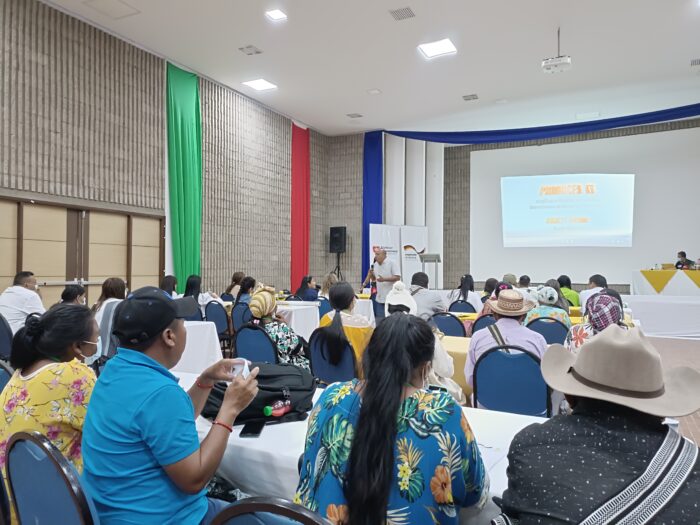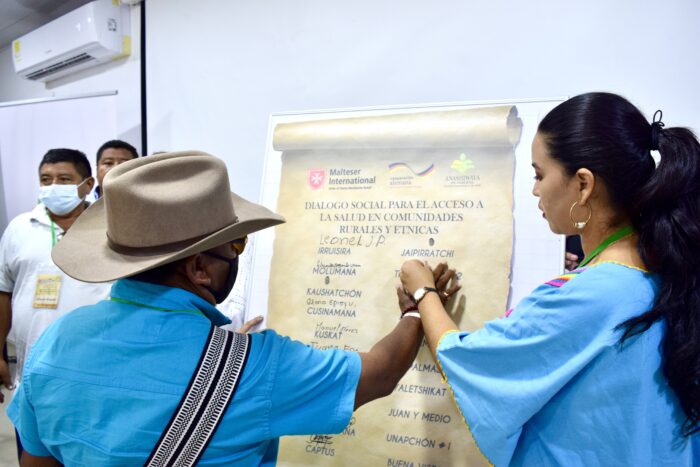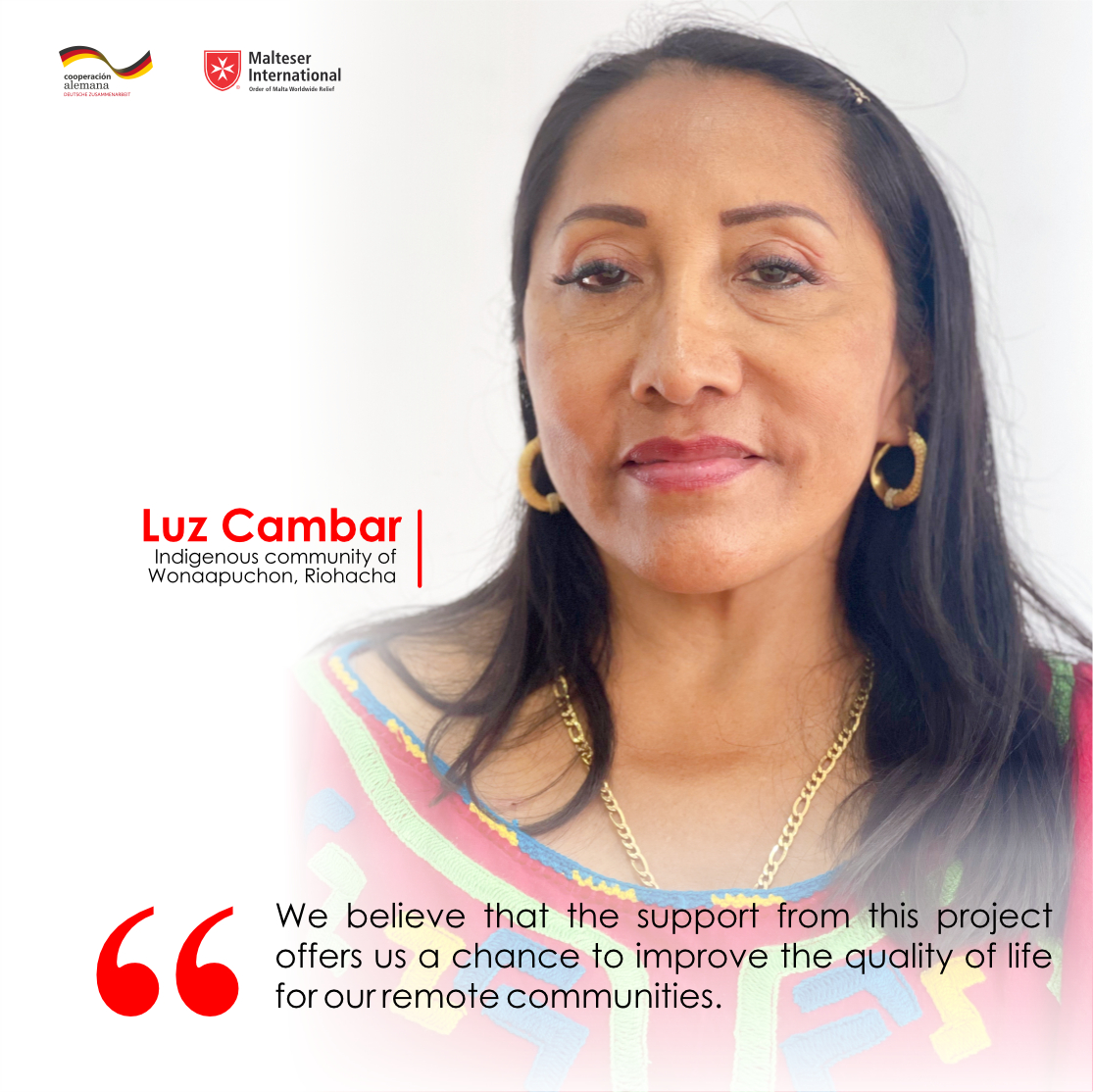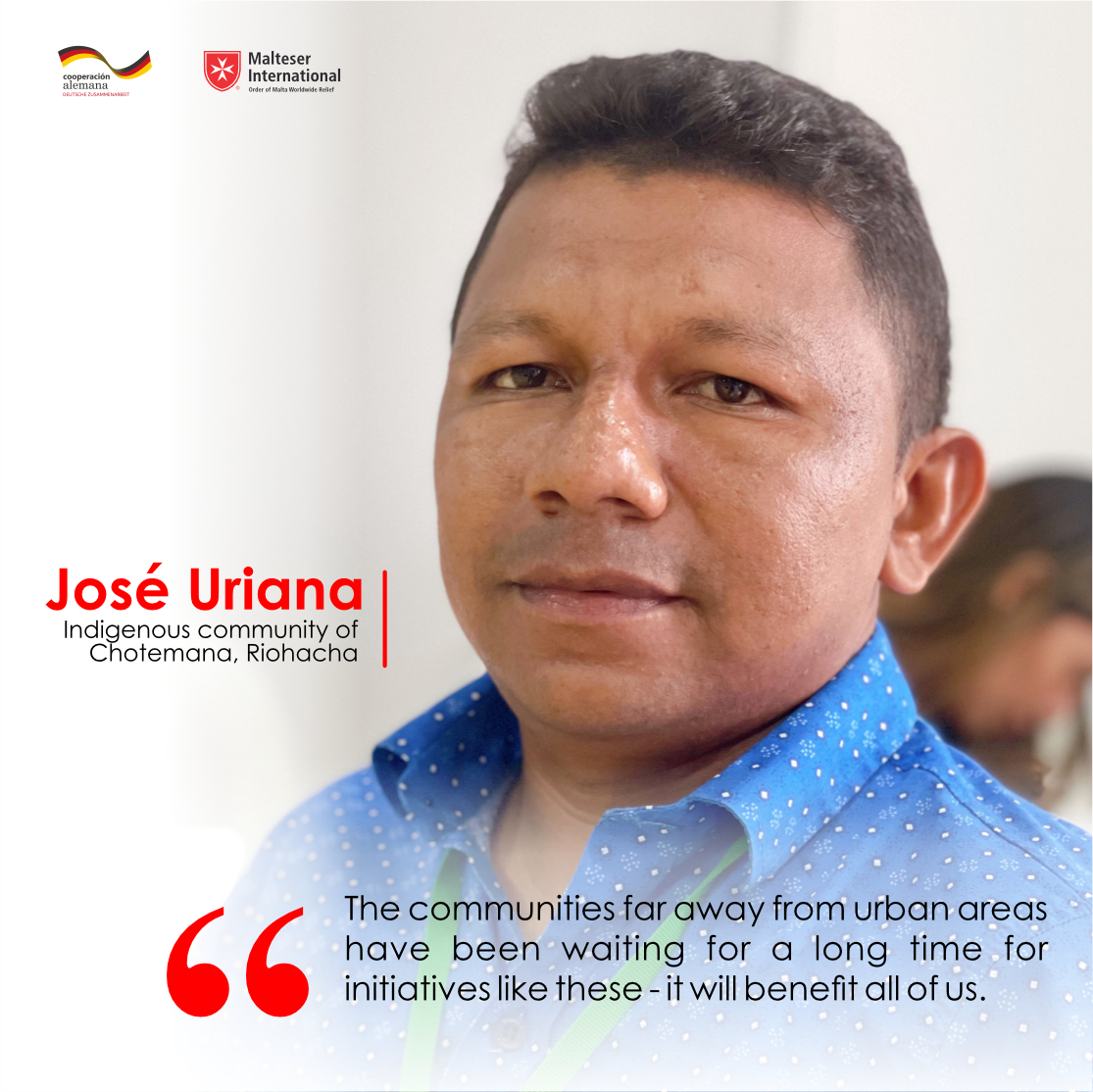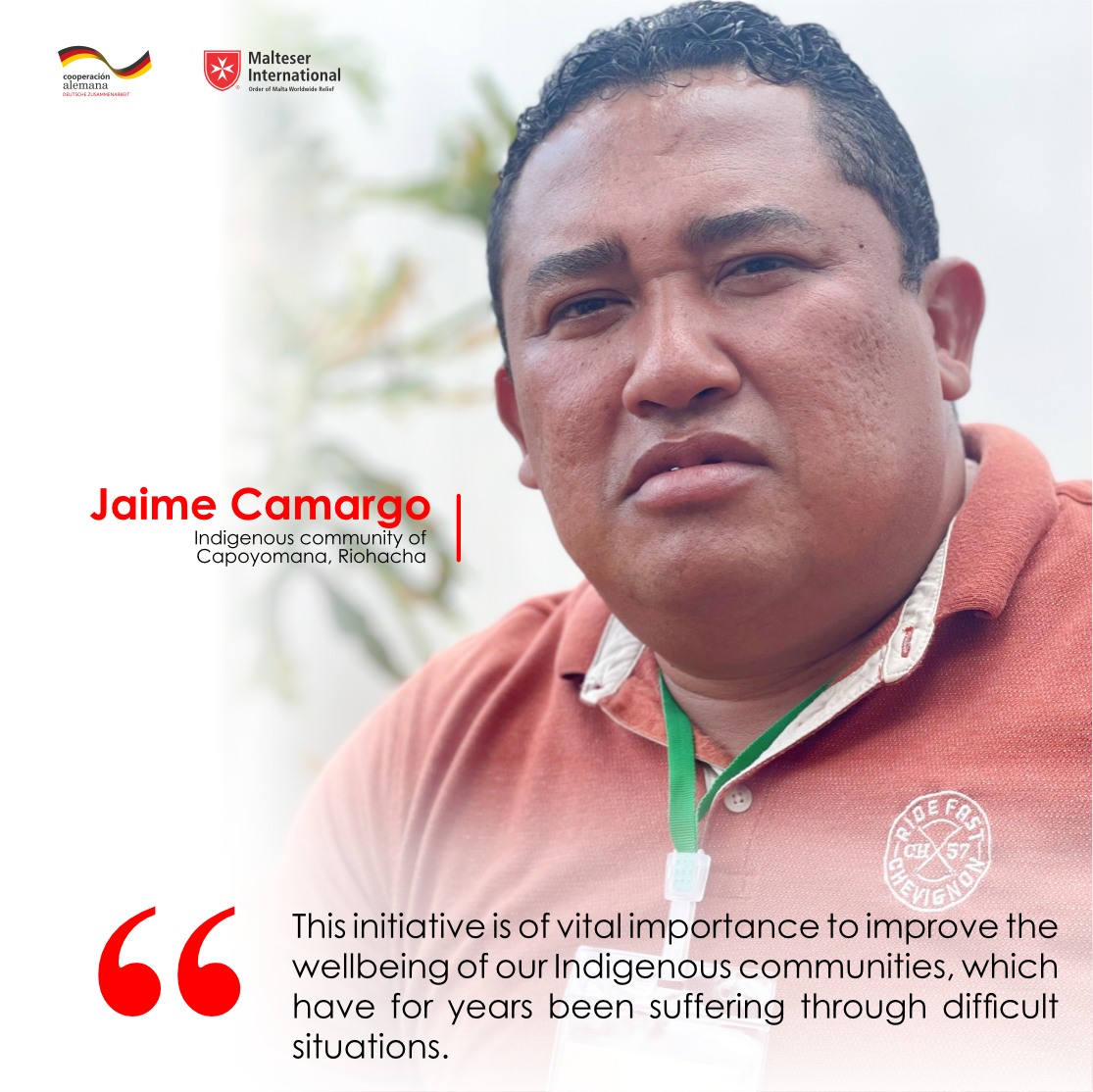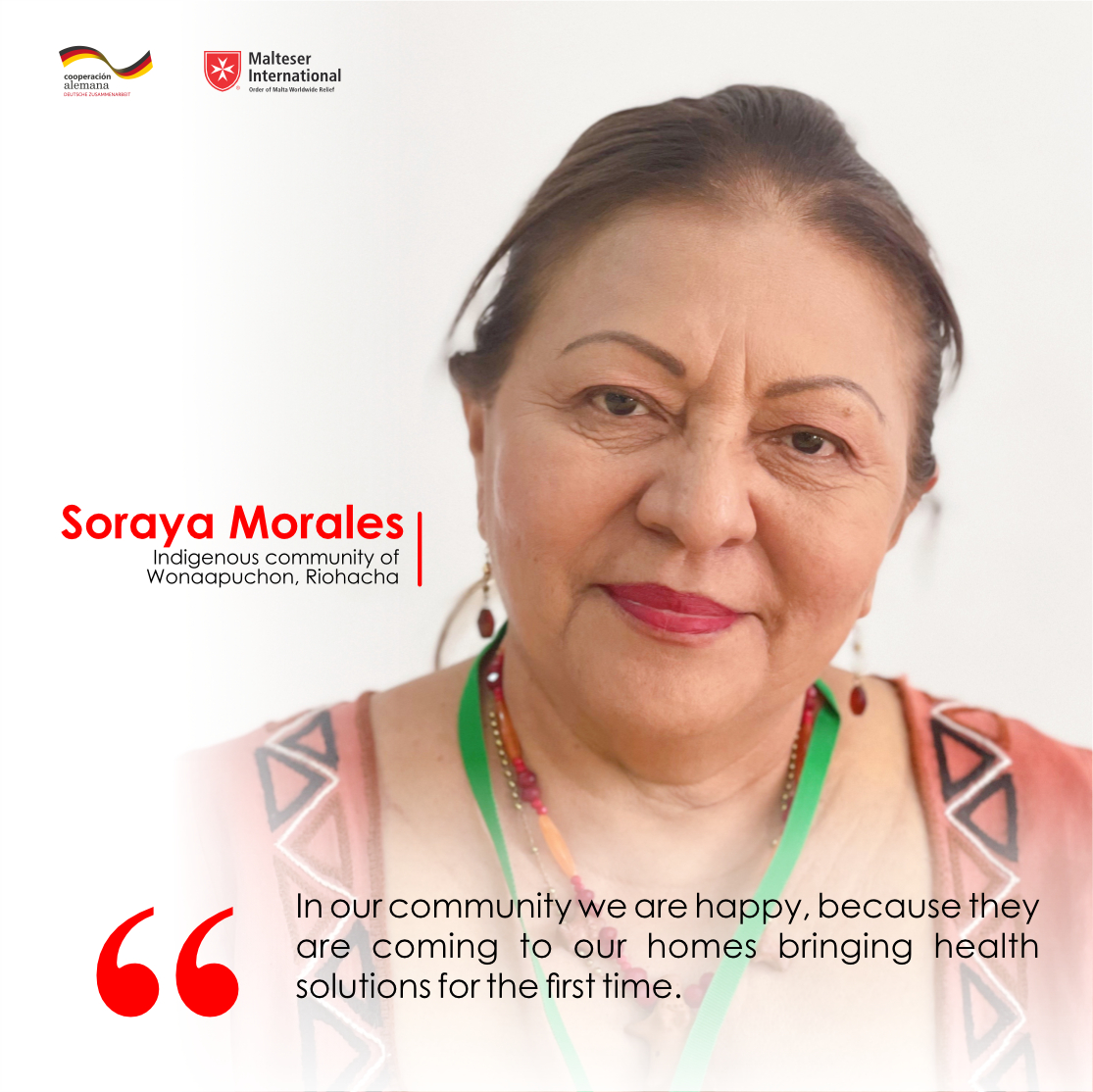South America
Colombia: Strengthening Community Dialogues around Healthcare Access in Rural and Ethnic Communities
La Guajira, located in Northern Colombia, is a multiethnic territory with diverse unmet needs, where a large swath of the population lives in extreme poverty. It has been one of the Colombian regions most affected by famine, food shortages and challenges to accessing clean potable water. This combination has led to serious healthcare problems that have severely affected rural populations, causing deaths related to malnutrition, especially amongst children.
Riohacha and Manaure, townships in La Guajira, rely on tourism and natural resources extraction. However, part of the territory is quite dry, which makes agricultural production quite hard, and obtaining water just as difficult. Additionally, a large part of these rural areas does not have paved roads, which makes providing healthcare services challenging. The delivery of healthcare services has been a complex undertaking with different shifting governmental entities, healthcare providers, and rural communities.
Through the program Social Dialogue for Healthcare Access in Rural and Ethnic Communities, Malteser International Americas seeks to strengthen healthcare access and promote community dialogues between rural and ethnic communities, local healthcare service providers and governmental institutions.
These dialogues are intended to overcome complex scenarios with a variety of different interest groups and implement programs to address the identified healthcare issues. Twenty communities in La Guajira have been selected as communities of focus, where we have been testing the initial programs to improve healthcare access.
Community engagement and constant communication and mediation between communities, governmental institutions and healthcare providers has been key to the success of the program. Traditional leaders and community chiefs have been active participants in this program, and traditional remedies and methods have been uplifted and combined with Western medicine, truly respecting ancestral knowledge and in accordance with the customs of the respective rural communities.
“In order to improve Indigenous peoples’ social and economic outcomes and bridge the wellness gap between Indigenous and non-Indigenous populations, access to quality healthcare must remain a leading priority” United Nations
Ways We Help:
- Workshops and Community Working Groups: We have organized and conducted working groups between communities, local healthcare service providers and governmental groups. The goal has been to identify the problems, understand the causes, propose solutions, and then finally reach agreements to an effective outcome.
- Surveys: We have successfully conducted surveys in and around rural communities, where these problems are endemic. These surveys have sought to identify the different social, economic, and environmental problems to develop an epidemiological study during the implementation of the program. Our end goal has been to facilitate operations of healthcare service providers and develop their capacity to understand the deep issues affecting the communities and serving their needs.
- Mobile Health Clinics: We operate mobile health clinics in rural communities where we provide medical consultations, vaccinations, and medicine supplies. We prioritize pregnant women, children, and older adults, in coordination with external partners. We provide medical diagnosis and referrals to our healthcare partners.
- Cultural Awareness: All activities are conducted respecting cultural traditions of the communities we serve, including Afro and Indigenous communities.
Our Results:
- To understand the healthcare access challenges in the region, we have conducted a deep analysis including months of discussions with rural and ethnic communities to reach an aligned consensus.
- We have conducted community visits to study location, population, and healthcare accessibility of each rural community to understand the unique challenges of each location.
- We have hosted 10+ workshops in 20 communities in La Guajira
- We have implemented the Community Health Care Managers program, training 50 members in healthcare promotion, disease prevention: epidemiological practices and healthcare technology tools.
- Objectives for 2023 include delivering 6,000+ medical consultations and reaching 20,000 direct beneficiaries.
Program Duration: July 2021-December 2024 = 3.5 years
Target Population: Rural multi-ethnic communities of the Municipio Riohacha – 177,573 people. In the long term, this program will benefit the entire department of La Guajira with a population of over 1 million.
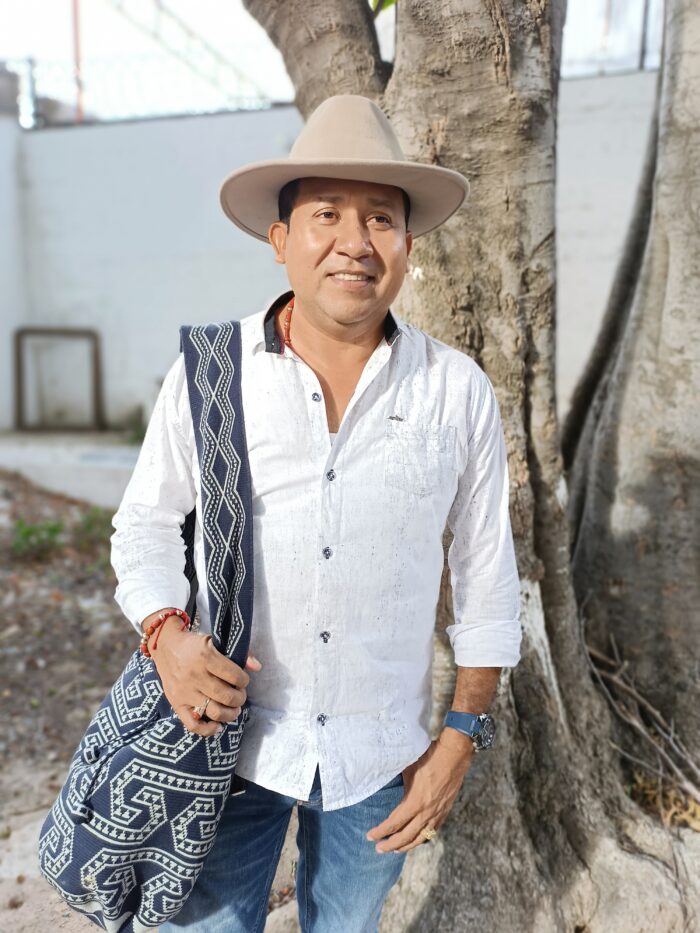 Success Story:
Success Story:
Guillermo Camargo is a Pütchipü (traditional leader) in the community of Copoyomana, located on the edges of the small town of Monguí, within the jurisdiction of the Riohacha District. Throughout his life he has experienced first-hand the shortcomings of healthcare service providers and the challenges of accessing healthcare services. Multiple times throughout his life public and private sector entities have reached his community, promising solutions to address gaps in access to healthcare, but never delivering.
Even when the goal of these entities was to expand their reach to rural and ethnic communities it was usually with the intent of acquiring additional customers, and not to provide sustainable long-term solutions to marginalized communities, like mobile health clinics brought directly to them. Their approach would have perpetuated the pattern of rural community members having to travel for hours to access healthcare services in urban areas, which is very costly and often prohibitive for the majority.
Despite his initial skepticism, based on previous negative experiences, Camargo quickly realized the value-add of Malteser International America’s program, which promotes a truly holistic approach addressing healthcare access for rural communities. Malteser International Americas believes that addressing the challenges to healthcare access for rural and ethnic communities begins with involving them in community discussions and listening to their input when strategizing solutions. As rural communities have been historically marginalized and excluded from dialogues involving their well-being it is important to include them and empower them to shape the solutions that affect their lives.
“Our deepest wish has been to receive medical care in our respective communities. It has been one of my dreams as a leader in this community. I wanted to provide the community with the opportunity interact directly with the doctors and other healthcare providers, to be able to express concerns and problems in person and provide our valuable input. It is the first time that we have experienced something so thorough, including medical consultations, vaccinations, physical therapy, and medicine supplies. All community members appreciate it a lot.” Guillermo Camargo.
